EHB 2023 WORKSHOPS & SPECIAL SESSIONS
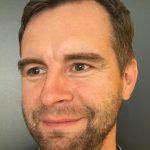
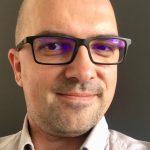
Design of Devices and Methods for Clinical Practice
Moderators:
Assoc. Prof. Martin ROZANEK, PhD
Assoc. Prof. Petr KUDRNA, PhD
About workshop:
Technological advances in the design of medical devices, development and optimization of new techniques as well as monitoring of patient biosignals (for example glucose parameters), or rehabilitation contribute to the improved safety of the patients and speeding up the healing process. Also, administration and documentation of care are easier. The workshop deals with novel methods and approaches in medical devices that could be used in the clinical practice to improve patient’s outcome and to minimize the adverse effects.
The workshop will be focused on the measurement of biosignals in clinical practise, modeling and simulation in intensive care, controlling of ventilator parameters according to the end-tidal carbon dioxide concentration or saturation of blood by oxygen etc. Some of the topics are NIRS (near infrared spectroscopy) and EIT (electrical impedance tomography).
Organizer:
- Czech Technical University in Prague, Faculty of Biomedical Engineering, Department of Biomedical Technology
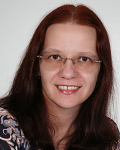
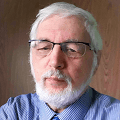
Applied Informatics towards Smart Healthcare Ecosystems
Moderators:
Prof. Sorana D. BOLBOACĂ, MD, PhD
SR. Eng. Sorin PUȘCOCI, PhD
About workshop:
Information and communication technologies (ICT) bring contributions to medical activity by providing additional tools in monitoring (e.g., vital signs etc.) and assisting diagnosis and treatment (e.g., decision support systems etc.). Overall, ICTs’ specific solution could increase the quality of the medical act toward precision medicine and assure transparency and easier access to medical services for everyone. Therefore, ICT is no longer a static asset but a dynamic enabler – a tool made available to the medical community, not an end in itself. The IT component manages and analyzes medical data, with important applicability in medical nursing informatics. Furthermore, also contributes to professional health education as well as screening and monitoring programs.
The CT component is part of medical technologies, with important applicability in telemedicine (teleconsultation, with relevance in rural areas or whenever the patient cannot pay a visit to the physician) and telehealth (healthcare services at-a-distance, as home telemonitoring of vital signs and real-time transmission of measured data to the doctor’s office).
The development of medical applications and platforms represents essential support for implementing the m-Health, tele-Health, e-Health and associated components. Their growth and global integration will change healthcare towards global integrated smart healthcare ecosystems.
Organizer:
- SRIM – Romanian Society of Medical Informatics
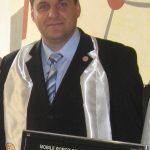
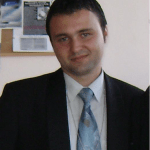
Advances in Motor-recovery Neurotechnology by means of Brain-Computer Interfaces, Functional Electrical Stimulation and Exoskeletons
Moderators:
Prof. Marian-Silviu POBORONIUC, PhD
Assoc. Prof. Dănuț-Constantin IRIMIA, PhD
About workshop:
Assisting robotics allows patients to perform repeated movements. Such movements can stimulate the brain to regain the upper/lower limb control and the phenomenon has been termed as neuroplasticity. Recent research emphasize that electromechanical-assisted gait training in association with Functional Electrical Stimulations (FES) produced more benefits than the only robotic treatment. Brain-computer interface (BCI) is a new technology with a potential to restore, substitute, or augment lost motor behaviours in patients with neurological injuries. The workshop deals with hybrid systems which aim to combine BCI, FES and exoskeletons to induce motor-recovery in impaired people due to a lesion at central nervous system level.
Organizer:
- “Gheorghe Asachi” Technical University of Iasi, Faculty of Electrical Engineering, Iasi, Romania
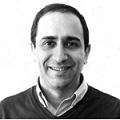
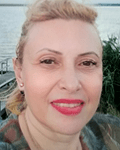
Sensors, Data and AI for Crop Health Monitoring
Moderators:
Assoc. Prof. Adel HAFIANE, PhD
Assoc. Prof. Mihaela HNATIUC, PhD
About workshop:
Almost 60% of fruit and vegetable consumers are convinced of the beneficial effects on human health. The high consumption of products from organic production is due to doubts regarding the use of synthetic pesticides and chemical fertilizers and their possible effects on human health and the environment. Crop health monitoring is an important aspect of modern agricultural practice, as it has a significant impact on the quality and quantity of agricultural production. However, assessing plant health status is a challenging task that requires substantial labor resources. Digital technologies (remote sensing, sensors, the Internet of Things, signal and image processing, artificial intelligence, robotics, automation, etc.) are one of the key approaches for meeting this challenge. Indeed, advances in sensor technologies and data processing have opened new perspectives for the detection and diagnosis of crop anomalies. Disease surveillance can be performed by capturing and analyzing data from the soil and plant cover using sensors, such as remote sensing or ground equipment. In this context, there is a growing need to develop new data acquisition and processing systems, as well as new methods of automatic analysis of these data, especially those based on artificial intelligence. The objective of this workshop is to provide an opportunity to discuss how the concepts and techniques in different fields related to the use of new technologies and developments for crops health assessment and monitoring.
Organizers:
- National Institute of Applied Sciences Centre-Val de Loire (INSA CVL), Bourges, France
- Constanta Maritime University, Faculty of Naval Electromechanics, Electronic and Telecommunication Department, Constanta, Romania
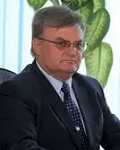
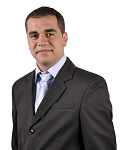
Determining the Value of Emotional and Behavioural Characteristics by Processing the Biosignals of the Human Body
Moderators:
Prof. Titi PARASCHIV, PhD
Prof. Felix ADOCHIEI, PhD
About this workshop:
The papers are presenting the results obtained by researchers in the field of human body biosignal processing with classical and data science specific methods. There are papers from the following fields:
- Brain Computer Interface (BCI);
- Neurophysiology and Psychophysiology;
- Cognitive and Emotional Robots;
- Neuromarketing, Neuroeconomics;
- Neurolaw and other fields using biosignal processing, regardless of scientific perspective.
It is a fundamental field for neuroscience because it links the biosignals that represent the alphabet with which the brain works to the amount of information encoded by them.
Organizers:
- Titu Maiorescu University, Bucharest, Romania
- University Politehnica of Bucharest, Romania
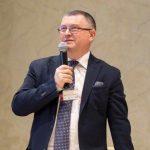
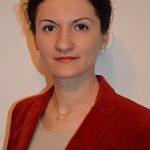
Medicine and Informatics
Moderators:
Prof. Marcel COSTULEANU, MD, PhD
Lecturer Adina Carmen ILIE, MD, PhD
About workshop:
The goal of the workshop is to establish a collaborative interdisciplinary research environment, by using the appropriate set of mechanical, electronics and bioengineering sciences, in order to develop aerospace applications. Gathering specialists from all these fields of interest will result in future innovative research and cross-border studies with real impact on everyday life. The current technological challenges of the space industry, as well as the international ESA program, bring the need for innovative research programs, requiring highly qualified experts and a broad interdisciplinary vision. The development of these technologies is possible only through intense collaboration between the technological sectors corresponding to the exact and biomedical sciences, with a broad view into new fundamental research problems that arise with every little discovery made in the aerospace field. We align with the current global trend of bringing valuable contributions, through research towards sustaining and improving life in space.
Organizer:
- Grigore T. Popa University of Medicine and Pharmacy, Faculty of Medicine, Iasi, Romania
